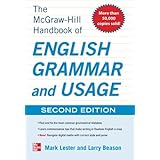trichotillomania (Also trichotillomanias) : Related Words Words similar in meaning to trichotillomania
- trichotillomania«
- trichotillomanic«
- hair«
- symptom«
- mania«
- disorder«
- ocd«
- cacoethes«
- dermatillomania«
- passion«
- compulsively«
- patient«
- individual«
- medication«
- trichotillomania treatment«
- hair pull test«
- behavioral therapy«
- gratification«
- trichobezoar«
- tension«
- adult«
- onychophagia«
- trichophagia«
- preadolescents«
- hair ball«
- habit reversal training«
- cognitive profile«
- diagnosis«
- onset«
- scalp«
- sedentary activity«
- condition«
- treatment«
- people«
- clomipramine«
- body dysmorphic disorder«
- treatment strategy«
- fluoxetine«
- cognitive behavioral therapy«
- differential diagnosis«
- difference«
- subtype«
- biopsy«
- criterion«
- relief«
- age«
- referral«
- prognosis«
- abnormality«
- unwanted repetitive behavior«
- uneven stubble«
- tíllein«
- trichster«
- trichotillomania wear hat«
- trichotillomania exhibit hair«
- term urge«
- term trichotillomania«
- superfest film festival merit award«
- several mobile apps«
- population epidemiologic study«
- perifollicular hemorrhage«
- other medical complication«
- neurocognitive model«
- multiple catagen hair«
- medication clomipramine«
- greek θρίξ/τριχ- thrix meaning«
- fragmented hair«
- empty follicle«
- deformed hair shaft«
- crown alopecia«
- compulsive nail«
- compulsive biting«
- cerebellar volume«
- automatic trichotillomania«
- additional psychological effect«
- childhood«
- vibration notification«
- trichomalacia«
- successful adjunct«
- structural mri study«
- passive hair«
- hoxb8 gene«
- compulsive spectrum«
- impulse«
- smart watch application«
- slitrk1 gene«
- recurrent loss«
- psychogenic alopecia«
- habit disorder«
- french dermatologist françois henri hallopeau«
- acetylcysteine treatment«
- pathology«
- rate«
- painful isolation«
- loose anagen syndrome«
- compulsive skin picking«
- alopecia mucinosa«
- dual treatment«
- bad hair life«
- % prevalence rate«
- subsequent pleasure«
- mavis gary«
- dermatophagia«
- psychiatrist«
- sense«
- noncicatricial alopecia«
- neural dysfunction«
- medical medium award«
- françois henri hallopeau«
- mutation«
- trich«
- hair density«
- gastrointestinal obstruction«
- psychologist«
- skin picking«
- rapunzel syndrome«
- normal bone marrow«
- eyebrow pencil«
- condition people«
- adulthood«
- microglia cell«
- female predominance«
- anxiety«
- traction alopecia«
- specific sensation«
- film young adult«
- ocd patient«
- excessive grooming«
- strong stress«
- preschool age child«
- normal hair«
- distinct clinical entity«
- complicated emotion«
- thallium poisoning«
- behavior modification program«
- viable treatment«
- many medication«
- receptor gene«
- psychiatric disturbance«
- habit formation«
- diagnosis difficult«
- irresistible urge«
- behavioral method«
- preadolescence«
- peak age«
- psychotherapy«
- pharmacologic treatment«
- classic presentation«
- stress environment«
- mouse«
- tinea capitis«
- robust evidence«
- multiple age«
- pharmacological intervention«
- repetitive stress injury«
- mario capecchi«
- evaluation«
- distinct subgroup«
- intervention«
- lifetime prevalence«
- fourth century b.c.«
- neural function«
- impulse control disorder«
- tic disorder«
- mri study«
- false eyelash«
- relaxed environment«
- underarms«
- commitment therapy«
- treatment response«
- alopecia areata«
- quality study«
- repetitive behavior«
- hair removal«
- genetic contribution«
- blind study«
- wearable device«
- naltrexone«
- impulse control«
- caudate nucleus«
- comorbidity«
- alternative technique«
- friar tuck«
- behavior«
- notable peak«
- abnormal behavior«
- other individual«
- multiple gene«
- obsessive–compulsive disorder«
- mutant mouse«
- person«
- study«
- school age child«
- permanent loss«
- biofeedback«
- iron deficiency«
- genetic component«
- child«
- family«
- other condition«
- carpal tunnel syndrome«
- secondary infection«
- obsessive compulsive disorder«
- preschool child«
- international health«
- post traumatic stress disorder«
- selective serotonin reuptake inhibitor«
- gray matter«
- socializing«
- tricyclic antidepressant«
- baldness«
- adult patient«
- hair follicle«
- unusual shape«
- negative attention«
- dermis«
- multiple site«
- ssri«
- basal ganglion«
- fear«
- regrowth«
- compulsive disorder«
- clinical feature«
- charlize theron«
- hypothyroidism«
- user«
- eyelash«
- hair loss«
- united state food«
- statistical manual«
- frontal lobe«
- strained relationship«
- gender difference«
- emotional distress«
- diagnostic«
- extreme form«
- psychiatric disorder«
- american psychiatric association«
- environment«
- internet site«
- anxiety disorder«
- glutamate«
- pathophysiology«
- reassurance«
- positive attitude«
- modern literature«
- fingernail«
- serotonin«
- low rate«
- result«
- educational material«
- hypnosis«
- logorrhea«
- kleptomania«
- pyromania«
- egomania«
- monomania«
- necrophilia«
- alcoholism«
- potomania«
- phaneromania«
- necrophilism«
- necromania«
- logomania«
- dipsomania«
- agromania«
- possession«
- manic disorder«
- wild«




